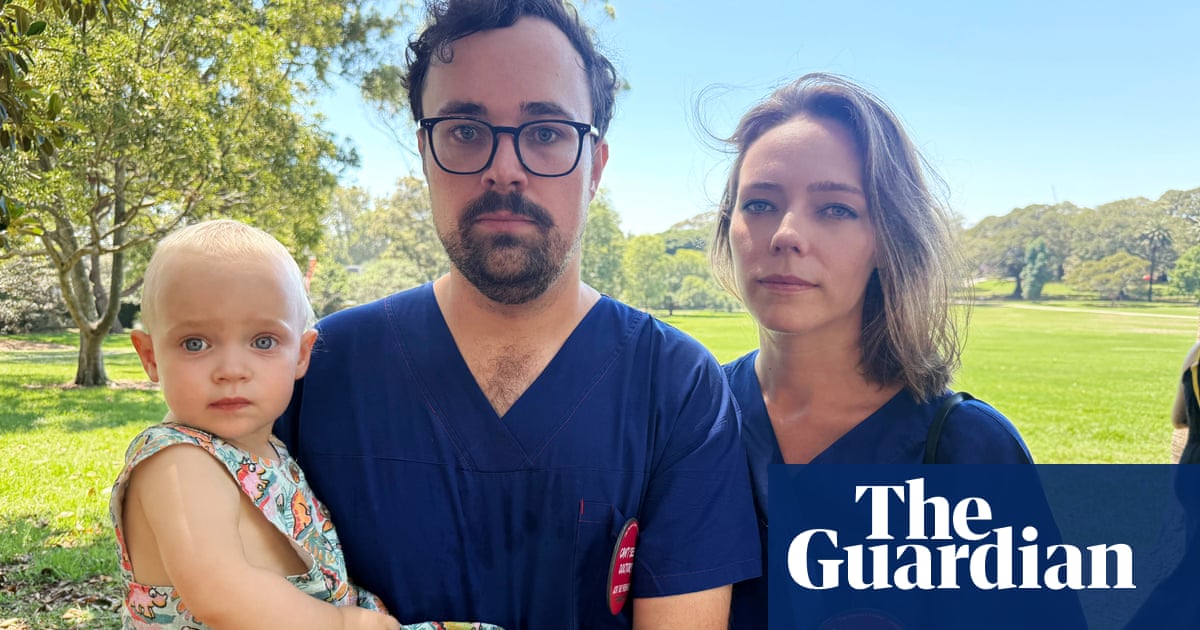Windfarms, train lines, science labs – when policymakers think about the ingredients for kickstarting the UK’s sagging economy, they tend to imagine tangible bits of infrastructure. But two of the UK’s most eminent public economists have banded together to urge Rachel Reeves to reconsider another dimension of the UK’s makeup: social capital.
Andy Haldane is the former chief economist at the Bank of England, now chief executive of the Royal Society of Arts. David Halpern is the man behind the so-called nudge unit, which brought behavioural economics into the policy mainstream.
The pair have penned a paper for the thinktank Demos, pointing to convincing evidence that any successful recipe for growth must include fostering trust and collaboration within communities.
Traditionally, economists focused on physical capital – those factories and transport links – and human capital: the skills and experience of the workforce.
But there is a longstanding US literature on a third dimension, social capital, pioneered by the political scientist Robert Putnam.
Putnam’s work shows that economies with higher levels of trust and social cohesion, tend to be more successful.
As the summer spending review gets under way, Haldane and Halpern argue it’s high time this insight found its way into the Treasury’s thinking. “The evidence is pretty damn strong at macro level,” Halpern said, when I spoke to the pair last week.
Haldane led work on the Levelling Up white paper for the last government, and says he first started thinking about the issue of social capital in the UK when he began working on regional inequalities, about a decade ago.
In areas where a big industrial employer has shut down, followed by a period of neglect and underinvestment, he argues, social capital tends to be weakened over time, in a way that then exacerbates the impact on the economy.
“It’s the things that make places, really: those parks, those youth clubs, those sports facilities, those libraries and museums. And in a sense, you know, social capital has been depleted as a result of the economic shocks, but then has provided its own amplifier,” he says.
“A community that is socially divisive and mistrustful has no hope, whatever you throw at it by way of money, jobs, businesses, infrastructure: basically, you are building them on shifting societal sands.”
It should go without saying that there are already good, solid, Labour reasons for funding youth centres, parks and libraries. Sure Start centres, too.
But with Reeves gleefully accepting the mantle of “iron chancellor” and promising a “ruthless” spending review, anything that fails to fit the template of her “Plan for Growth” risks falling by the wayside.
Haldane and Halpern hope to offer another lens through which to judge taxpayer priorities.
“I don’t think this is really in the bloodstream of your average God-fearing Treasury official, to be honest: unless I’ve not being paying attention for the last 35 years,” says Haldane.
Interestingly, survey evidence presented in the paper suggests some reasons for optimism for the UK – one measure of social capital, whether people generally trust one another, has actually ticked up recently, perhaps spurred by the spate of volunteering and neighbourliness during the Covid pandemic.
And Halpern’s work suggests relatively small interventions can have a significant impact, helping to create the kinds of connections that tackle loneliness and foster cooperation.
He cites a community centre in Wolverhampton he recently visited as part of his work for the Independent Commission on Neighbourhoods, funded with a small grant from a local trust.
“It’s very powerful when you’re there,” he says. “Shit happens in people’s lives, like something’s gone wrong: runaway kid, mental health issues, etc. It gave them somewhere to go in, and they’re self-organising.”
“It’s actually wonderful. It’s wholly obvious that this human fabric is important, as opposed to living in our houses in isolation.” These are the kinds of connections and support networks that can make a profound difference to people’s life-path – economically, as well as socially.
The Demos paper – subtitled “The Hidden Wealth of Nations” – lists a kaleidoscope of possible policy interventions, for a government that takes social capital seriously.
Some of these, Halpern argues, could be trialled on a small scale, along the lines of the “test and learn” approach recently extolled by the Cabinet Office minister, Pat McFadden.
“As best we can tell, these aren’t gargantuan blockbuster public works programmes,” says Haldane. “It turns out a youth club isn’t that expensive, if you think the payoff might be of the type that we’re talking about.”
Their suggestions embrace everything from funding residential accommodation at university for the poorest students, to help them make connections enjoyed by wealthier peers; to hiring community organisers in areas of the UK where social capital is especially weak.
Other ideas include connecting schools up to local entrepreneurs, along the lines of an existing scheme called Founders for Schools, and even “re-tuning” stamp duty, to encourage parents to downsize and move nearer their children, to cement family connections.
Whether kids have a park or a club to hang out in, and their parents can connect over a coffee or a pint, is too nebulous a question to figure directly in Treasury number-crunchers’ spreadsheets. But Haldane and Halpern make a convincing case that social capital should be an essential part of the recipe for sustainable economic recovery.
Or as Haldane neatly puts it: “this is the cake, not the icing. Basically, our current approach to budgeting and thinking about it makes it very much the hundreds and thousands.”
Article by:Source – Heather Stewart













